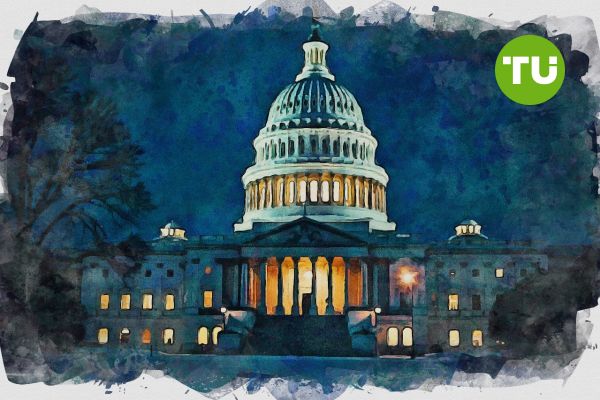U.S. Senate sets date for final vote on GENIUS Act
 Senate prepares for landmark vote on GENIUS Act stablecoin bill
Senate prepares for landmark vote on GENIUS Act stablecoin bill
The U.S. Senate is poised for a landmark vote on the Guiding and Establishing National Innovation for US Stablecoins (GENIUS) Act on Tuesday, June 17, which could establish the nation’s first comprehensive federal regulatory framework for stablecoins.
Following a 68–30 procedural vote on June 12, the bill advanced toward full floor consideration, marking a significant step for the crypto industry’s regulatory clarity, reports Cryptopolitan.
If passed, the GENIUS Act would not only legitimize stablecoins at the federal level but also signal the U.S. government’s deeper engagement with digital asset infrastructure. Senate Majority Leader John Thune has tied the bill’s passage to broader ambitions of cementing America’s global leadership in crypto innovation, echoing President Donald Trump’s pro-digital asset rhetoric.
Divided support highlights political and regulatory tension
While the bill enjoys bipartisan momentum, it has also exposed deep political and ethical fissures in the Senate. Senator Elizabeth Warren voiced strong opposition, criticizing the GENIUS Act for lacking sufficient consumer protections and accusing Trump of using crypto legislation as a vehicle for personal gain.
She cited concerns over Trump’s alleged ties to World Liberty Financial—a family-affiliated crypto venture—and claimed the bill could open the door to “presidential corruption through digital assets.” These allegations have amplified calls for amendments to tighten oversight and bolster safeguards, even as Democrats remain split between advancing regulatory clarity and resisting perceived improprieties linked to Trump’s broader crypto agenda.
Stablecoin oversight may reshape global crypto regulation
If enacted, the GENIUS Act would create new compliance standards for issuers of dollar-backed digital tokens, potentially accelerating on-chain adoption and institutional integration. Analysts argue that the legislation could set a global precedent, positioning the U.S. as a regulatory trendsetter in crypto finance.
The bill’s trajectory also intersects with the CLARITY Act in the House, which would define digital asset market structures and provide additional investor protections. As global regulators—from the EU to Japan—watch closely, the GENIUS Act may catalyze a shift toward harmonized, rules-based oversight for stablecoins and digital currencies worldwide. However, whether the bill survives final Senate scrutiny remains uncertain in a politically charged climate.
Recently we wrote that BitMEX CEO Arthur Hayes has issued a warning to crypto investors, predicting heightened volatility ahead as President Donald Trump renews his push for unilateral tariffs, with a key deadline looming on July 9.













































































































































